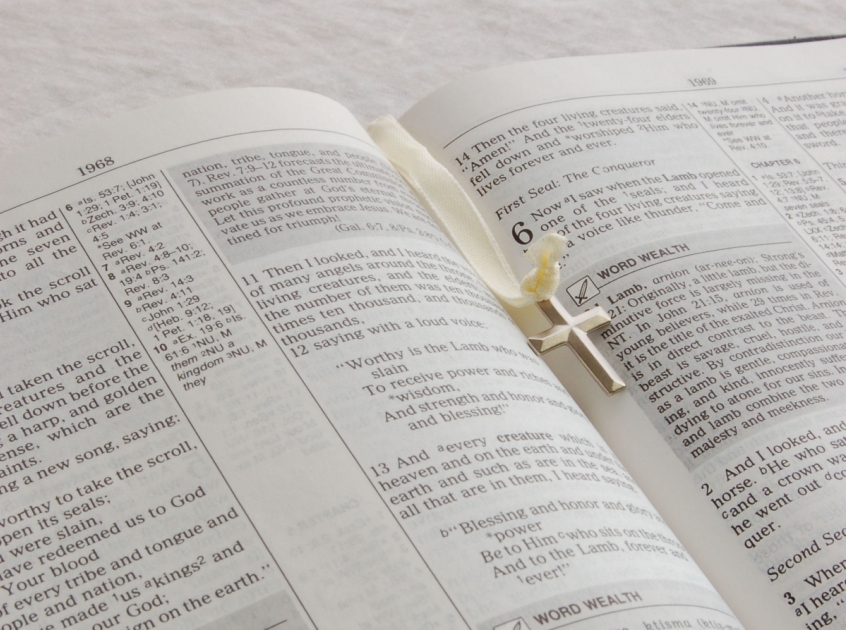
Natalie Collins is part of the Christian Feminist Network and the founder of Spark, an organisation that is committed to "engaging communication and communities to prevent and respond to violence against women and other gender-related issues'. She talks to us about Christian feminism means and the work that still needs to be done to realise full gender equality.
CT: What would you say it means to be a Christian feminist? NC: That should sound like an easy question but it isn't really. One of the challenges is that feminism in itself is not a movement that everybody agrees on. With Christianity there's a creed and most Christians sign up to the creed and say 'we might disagree on these secondary issues but we have a fundamental belief in what is right' but there isn't that within feminism.
Feminism is various women, and men as well, standing up at various points throughout history, saying it's not okay that women aren't treated like people. We all can agree as feminists that women should be treated as people but beyond that it's very difficult to get any kind of consensus on many other things.
So to be a Christian feminist is to be somebody who is committed to following Jesus but does so by placing a high priority on encouraging the wider community in which they exist to see women as people too.
CT: How would you characterise the state of women in the church in the UK? NC: I did some statistics before Christmas – I have a blog called God Loves Women and I did some statistics at the national conferences and the ratios of men and women on the platforms and I found that, across the UK, about 72 per cent of speakers are men and 28 per cent are women.
There was only one conference that got anywhere near a 50/50 balance. When we're looking at the fact that 65 per cent of the actual churchgoers in the UK are female but they make up only 28 per cent of the speakers on a national platform, we've got a massive problem with the distribution of power within the church from a gender perspective.
Obviously it is a problem that there are fewer men in church but even though there are more women in the pews, there are not as many women with decision making powers in the church, and in terms of how the church runs, the major decisions are all made by men.
In the Church of England, these decisions are made by bishops. Even though women do a lot within the church, they don't have the power.
CT: Which denominations and groups within the church are doing the best for women? Which are doing worst? NC: I'd say it's not based on denominational lines. You can have an Anglican church which is very complementarianist and you can have an Anglican church which is very egalitarian.
There are some denominations and groups which are based on complementarianism, for instance New Frontiers still holds to a complementarian theology, but with a lot churches it comes down to the individual who is leading the church as to whether women are given a strong voice within the church and are able to fulfil their potential.
CT: What are the main issues that you see women doing well at within the church? Where is the church improving with regards to women? NC: I think things are getting better. There's a sense that the fundamental message of the Gospel, that we're all loved and we're all created equally and called to have a purpose, should be massively liberating for women.
Regardless of what church they go to and the messages of human beings within those churches are superseded by the Holy Spirit and the call of the Gospel.
Younger women have been exposed to a broader message of feminism throughout society, and are being raised and told that they have value and can achieve whatever they want.
CT: Where do you see the church doing well in response to social issues facing women? NC: There are some really good Christian organisations that are working to bring freedom to women in various areas such as domestic violence and trafficking but there are also issues that the wider feminist movement have with some Christian organisations because they bring a mentality of rescuing women rather than empowering them and helping them to see that they're valuable.
There's a Christian organisation called 28 Too Many working to end female genital mutilation and they're doing amazing work, they're leaders in the field. There are many great organisations but they're often fighting their own Christian communities in order to have the resources or the time or the space to do their work when there are so many priorities and so many voices wanting different things.
CT: What specific passages of the bible do you think are abused when it comes to discussions of women in the church? NC: The verse in Timothy (1 Timothy 2:11) about women learning in silence and submission and Ephesians 5 about women submitting to their husbands. The verse that I think is most liberating for women but that is also used to oppress women is Genesis 3:16, 'your desire will be for your husband and he will rule over you', and that's often seen as a command for men to rule women.
I would say however that it is a consequence of the fall and it's not God's best plan for humanity, and what Jesus lived, died and was resurrected for was to remove the curse of sin and death and it's our responsibility as Christians to live out a new reality where male domination, or patriarchy, is no longer the dominant narrative of our lives.
CT: What are the main causes of the current situation for women in the church? NC: Neurosexism is a contemporary cause, where quite dodgy neuroscience about how men and women are wired differently is put forward, that's influenced the church massively.
These studies really restrict men and women accessing the full range of humanity and these gender stereotypes are often brought into church – we often put men and women into very specific roles within the church; women are expected to make the teas and coffees and run the crèche.
Even if women feel called into ministry they're rarely able to exercise that because they're too busy making the teas and coffees and often the men don't recognise the hope or need for the women to step up and do those things. But some of these issues come from the conditioning of individuals and their perceptions of themselves as men and women.
CT: Why do you think it is that there are more women in the church overall? NC: There are lots of theories around that. A lot of it is around the dominant narrative of masculinity in the UK, that men shouldn't be vulnerable or admit their failings.
A form of gender identity based on being strong is fundamentally opposed to what the gospel says about humanity being weak and needing God's help. Men don't go to the doctors as often as women because there is a view of them having to be strong and courageous.
Churches should reach out to men by saying they don't need to fit into this narrative and challenging the very structure of masculinity but instead they actively encourage it and say you need to be really big and tough and strong.
CT: What do you think women can do to improve their situation in the church? NC: I think making it visible if something is not okay – women need to acknowledge if there's something wrong with the current way that things look.
There are a lot of women who would say 'I want to be looked after, I want to be the princess and wait for the prince to come and rescue me' and they abdicate responsibility but we as women need to take responsibility for our spiritual growth and our development as human beings.
We need to take up that responsibility to follow God whole-heartedly and believe that God has called us and given us a purpose. For some of us it will be the traditional narrative within the church of being a stay-at-home mother but others struggle against that narrative that suggests that's what we should be doing.
I think it's a lot about our perceptions of ourselves and our ability to raise up other women – we shouldn't be in competition with other women over the small amount of power available to us but should raise up the next generation of women to see that they can be included in the Body of Christ.
CT: What should men be doing to help women's role within the church? NC: If there are only a certain number of places on the platform, some men would have to stand down to make room for women.
It takes a lot to be willing to give up your power. But the first step is recognising that there is a problem, listening to the stories and experiences of women. As well as the positions within the church, men need to step up in their positions of husbands and fathers, saying that they're as responsible for children as their wives.
They need to learn to love sacrificially and give up the roles and power they've been assigned.













